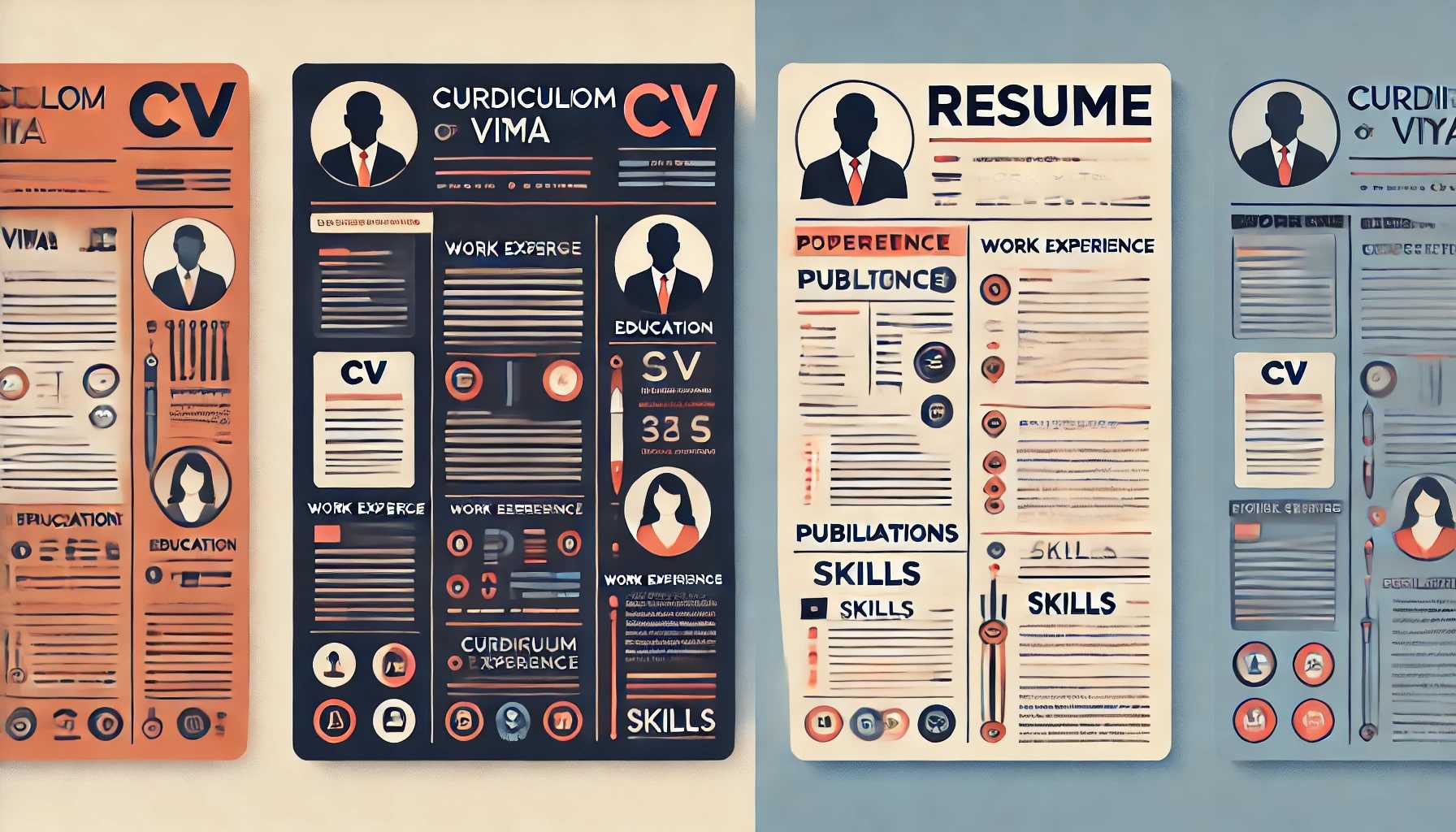Curriculum Vitae vs Resume
When it comes to job applications, two documents often come into play: the curriculum vitae (CV) and the resume. While both serve as tools to showcase your qualifications to potential employers, they are not interchangeable and are used in different contexts. Understanding the differences between a CV and a resume is crucial for tailoring your job applications to meet the expectations of employers in various industries and regions.
This comprehensive guide will explore the key differences between a CV and a resume, when to use each, and tips on how to craft both documents to maximize your chances of landing the job.
What is a Curriculum Vitae (CV)?
A curriculum vitae, commonly referred to as a CV, is a detailed document that outlines your entire career history, including your education, work experience, achievements, publications, and other relevant information. The term “curriculum vitae” is Latin for “course of life,” which reflects the document’s role in providing a full account of your professional journey.
Key Characteristics of a CV:
- Length: Typically much longer than a resume, often spanning two or more pages. In academic or research fields, a CV can be several pages long.
- Content: Includes a comprehensive overview of your education, work experience, academic achievements, research, publications, presentations, awards, honors, and other relevant details.
- Format: Chronological, focusing on detailed descriptions of your career history. It usually begins with your most recent experiences and works backward.
- Purpose: Commonly used in academic, research, medical, and international job applications. It’s particularly important in contexts where your full career history is relevant to the position.
What is a Resume?
A resume is a concise document that summarizes your skills, work experience, and education. The purpose of a resume is to provide a snapshot of your qualifications that are most relevant to the job you are applying for. The word “resume” comes from the French word meaning “summary,” which highlights its brevity and focus.
Key Characteristics of a Resume:
- Length: Typically one to two pages, depending on your level of experience. The goal is to keep it short and to the point.
- Content: Focuses on your most recent and relevant experiences, skills, and accomplishments. It includes sections like work experience, education, skills, and sometimes a summary or objective statement.
- Format: Can be chronological, functional, or a combination of both. The format you choose depends on your career history and the job you’re applying for.
- Purpose: Commonly used in business, technology, engineering, and many other industries in the United States and Canada. It’s designed to quickly convey your suitability for a specific role.
Key Differences Between a CV and a Resume
Length and Detail:
- CV: Typically longer, with no strict length limit. It covers your entire career, including detailed descriptions of your work, publications, presentations, and more.
- Resume: Shorter, usually one to two pages. It highlights your most relevant skills and experiences for the job you’re applying for.
Content:
- CV: Includes comprehensive details about your academic and professional achievements, such as publications, research, awards, and affiliations.
- Resume: Focuses on your work experience, skills, and education, with an emphasis on what’s most relevant to the job.
Usage:
- CV: Commonly used in academic, medical, scientific, and international job applications. It’s the preferred document for applying to research positions, academic roles, or jobs outside the United States and Canada.
- Resume: Standard in most industries in the United States and Canada. It’s the go-to document for business, technology, engineering, and many other fields.
Customization:
- CV: Less tailored to specific jobs. Since it’s a comprehensive record, it’s often sent as is, with minor updates or adjustments.
- Resume: Highly customizable. You should tailor your resume for each job application, emphasizing the experiences and skills most relevant to the position.
When to Use a CV vs. a Resume
Use a CV if:
- You are applying for a position in academia, research, or medicine.
- You are applying for a job in a country where CVs are the norm (e.g., most European countries, Asia, Africa).
- You have significant academic or research accomplishments, such as publications, patents, or conference presentations.
Use a Resume if:
- You are applying for a job in the United States or Canada (outside of academic or research roles).
- You are applying for positions in industries like business, technology, marketing, finance, or engineering.
- You need a concise document that quickly communicates your qualifications to potential employers.
Crafting an Effective CV and Resume
Whether you are preparing a CV or a resume, there are several key principles to keep in mind:
- Accuracy: Ensure that all information is up-to-date and accurate. Double-check dates, job titles, and other details.
- Clarity: Use clear, concise language. Avoid jargon or overly complex terms that may confuse the reader.
- Organization: Structure your document logically, with clearly defined sections. Use headings, bullet points, and consistent formatting to make your document easy to read.
- Tailoring: Customize your resume (and to a lesser extent, your CV) to the specific job or industry you are applying to. Highlight the most relevant experiences and skills.
- Proofreading: Typos and grammatical errors can create a negative impression. Take the time to proofread your document or have someone else review it.
Conclusion
Understanding the differences between a CV and a resume is essential for navigating the job market effectively. While both documents serve to showcase your qualifications, they are used in different contexts and should be crafted accordingly. A well-prepared CV or resume can significantly enhance your chances of landing the job you want.
For those looking to create a professional and impactful CV or resume, mycvcreator.com is the perfect tool. With a wide range of customizable templates and expert guidance, mycvcreator.com ensures that your document not only looks polished but also effectively communicates your qualifications to potential employers. Start building your CV or resume today with mycvcreator.com and take the next step toward your career goals.









